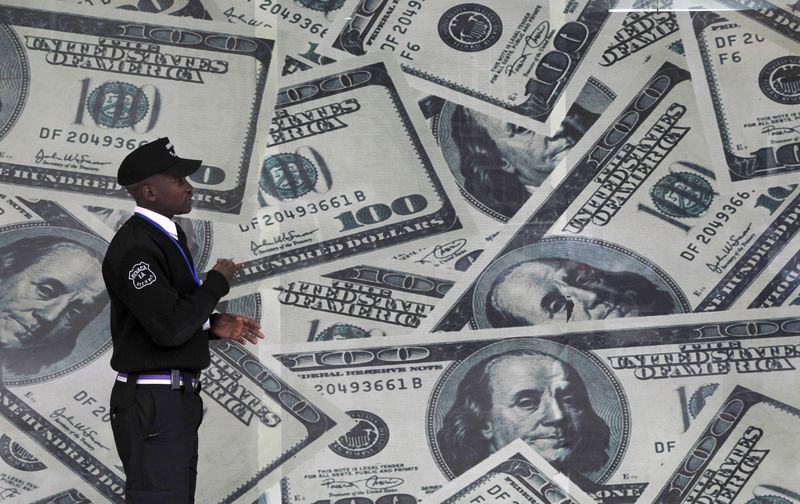Investing.com - The dollar rose on Tuesday, as Middle East and China-U.S. trade relations eased.
The U.S. dollar index, which measures the greenback’s strength against a trade-weighted basket of six major currencies, was up 0.20% to 89.32 by 11:21 AM ET (15:21 GMT).
Geopolitical tensions eased on Tuesday but remained on the back of investors minds. Risk appetite has improved, after U.S.-led missile strikes on Syria over the weekend did not lead to an escalation into a broader conflict.
The dollar was also supported by economic data. U.S. housing starts rose by 1.9% in March, to a seasonally adjusted annual rate of 1.319 million units last month, the Commerce Department said. A separate report showed that industrial and manufacturing production also rose, supporting a strong economic outlook for the U.S. economy.
The dollar had come under pressure on Monday after U.S. President Donald Trump tweeted that Russia and China have devalued their currencies. The tweet followed a report from the U.S. Treasury Department that declined to name China as a currency manipulator.
The dollar gained ground against the yen, with USD/JPY rising 0.29% to 107.61. The safe haven yen is often sought out by investors in time of market turmoil and political tensions.
The euro continued to fall, with EUR/USD down 0.26% to 1.2347.The euro came under some selling pressure after a report showing that German economic sentiment deteriorated sharply again in April amid concerns over heightened international trade tensions.
The pound eased back from 22-month highs against the dollar after UK jobs data on Tuesday showed that wage growth missed estimates, but a cost of living squeeze is still easing. GBP/USD fell 0.17% to 1.4314.
The Australian dollar was lower, with AUD/USD down 0.14% to 0.7770 while NZD/USD decreased 0.39% to 0.7334.
In Canada, the loonie rose, with USD/CAD falling 0.06% to 1.2561.
